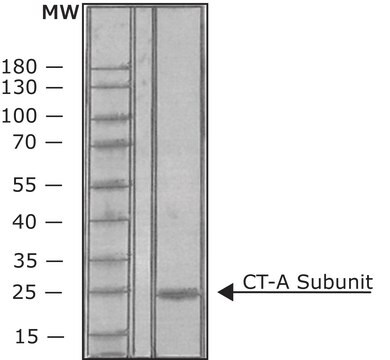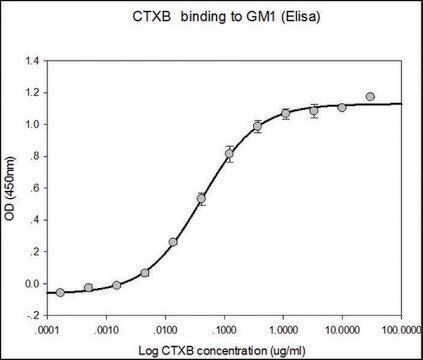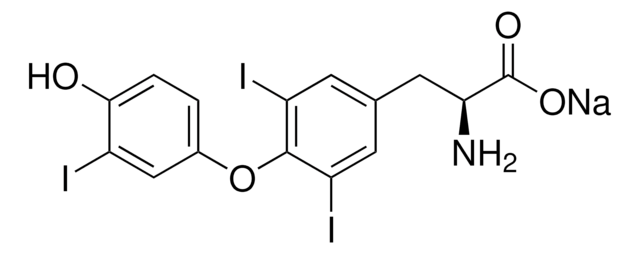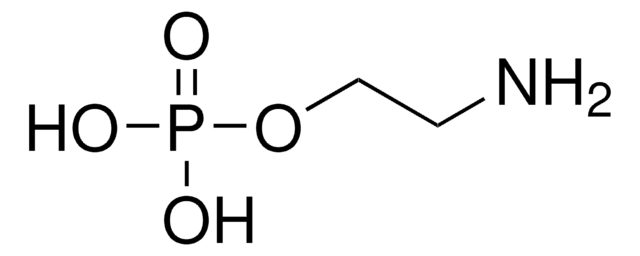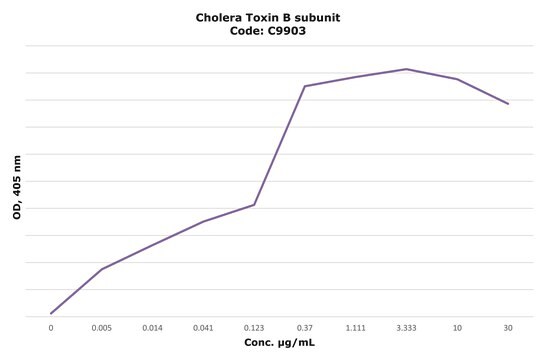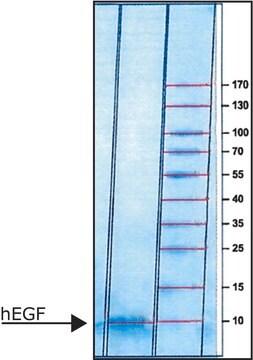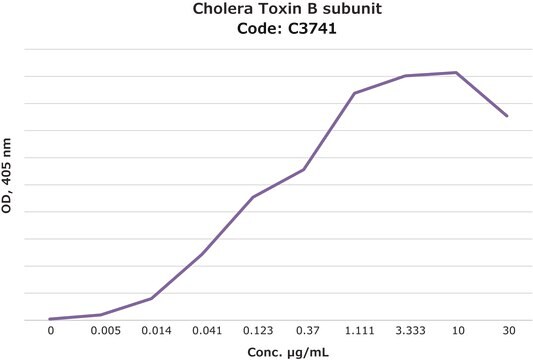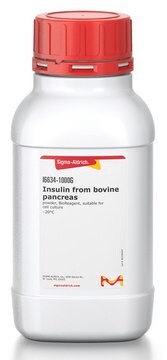227036
Cholera Toxin
from Vibrio cholerae, ≥95% (SDS-PAGE), solid, A-B type toxin, Calbiochem
Synonym(s):
Cholera Toxin, Vibrio cholerae, Type Inaba 569B, Azide Free
About This Item
Recommended Products
product name
Cholera Toxin, Vibrio cholerae, Type Inaba 569B, Azide Free, Cholera toxin Inaba 569B, CAS 9012-63-9, has a single A subunit surrounded by five polypeptides chains of the B subunits. The A subunit catalyzes the ADP-ribosylation of the α-subunit of G-proteins.
Quality Level
Assay
≥95% (SDS-PAGE)
form
solid
manufacturer/tradename
Calbiochem®
storage condition
do not freeze
shipped in
ambient
storage temp.
2-8°C
General description
Biochem/physiol Actions
α-subunit of G-proteins
Packaging
Warning
Physical form
Reconstitution
Analysis Note
Other Notes
Legal Information
Signal Word
Danger
Hazard Statements
Precautionary Statements
Hazard Classifications
Acute Tox. 1 Dermal - Acute Tox. 1 Oral - Skin Irrit. 2
Storage Class Code
6.1A - Combustible acute toxic Cat. 1 and 2 / very toxic hazardous materials
WGK
WGK 3
Regulatory Listings
Regulatory Listings are mainly provided for chemical products. Only limited information can be provided here for non-chemical products. No entry means none of the components are listed. It is the user’s obligation to ensure the safe and legal use of the product.
JAN Code
227036-MG:
227036-1MG:
Certificates of Analysis (COA)
Search for Certificates of Analysis (COA) by entering the products Lot/Batch Number. Lot and Batch Numbers can be found on a product’s label following the words ‘Lot’ or ‘Batch’.
Already Own This Product?
Find documentation for the products that you have recently purchased in the Document Library.
Customers Also Viewed
Our team of scientists has experience in all areas of research including Life Science, Material Science, Chemical Synthesis, Chromatography, Analytical and many others.
Contact Technical Service

